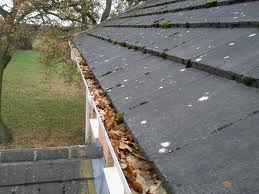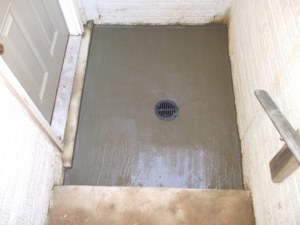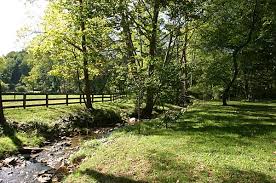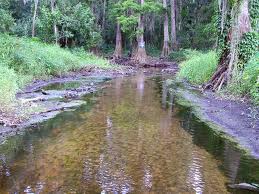Since heavy storms and rain events can occur throughout the year, MSD Project Clear is encouraging homeowners to play a part in reducing problems in their own homes and neighborhoods due to rain events.
Rain events can occur any time of year. Since heavy storms and rain events can occur throughout the year, MSD Project Clear is encouraging homeowners to play a part in reducing problems in their own homes and neighborhoods due to rain events. By following a few proactive steps, homeowners will help allow the area’s stormwater sewers and drainage systems to operate at the highest possibly efficiency. Tips for Homeowners:
Be sure gutters are free of leaves, branches, and other blockages. Blocked gutters can cause water to cascade down the side of a structure or pond on a roof, both of which can cause rainwater to enter a home.
Clear streets and inlets of debris. Leaves, plastic bottles, branches, and other debris can easily block inlets. When high intensity rainstorms hit, these items are washed into the inlets. Items that make it into the sewer decrease the amount of water that can be handled. Items that don’t go into the sewer block inlets, which in-turn causes street and other localized flooding.
Clear downspouts and make sure they are directed away from your house. Misdirected downspouts can focus water toward a home, causing flooding within the structure or foundation damage.
Clean Window Wells. Many homes have window wells outside their basement windows. Be sure these areas are free of leaves and other debris so they can drain properly and as quickly as possible. If water accumulates, it presses up against the basement window, which in turn can seep into or even flood your basement.
Clean Stairwell Drains. Homes that can be entered through a basement door will have a drain at the bottom of the stairwell. Make sure this drain is not blocked and is clear of leaves and other debris. Accumulating water in the stairwell can also seep in and flood your basement.
Check sump pumps. Water from a sump pump should drain away from the house so that it does not flow back into the basement. Many sump pumps incorrectly lead to the basement drain – the pump’s drain should lead outside. It’s a good idea to have a backup pump in case the primary pump fails.
Limit indoor water use. By limiting the use of dishwashers, washing machines, bathtubs, and the like during intense rainfalls, less demand will be put on the sewer system. In those parts of our area with sewers handling both wastewater and stormwater, the ability to handle stormwater will be increased.
Clear drainage paths on your property. In many parts of our community, small creeks, streams, and other waterways provide stormwater drainage. Ensure that the path rainwater travels from your property to drain into these waterways is clear of possible blockages. Portable pools, loose recreational equipment, piles of yard debris (grass clippings, branches, etc.), and the like can block these drainage ways and stop water from draining as quickly as possible from your property. Remove these possible blockages and ensure that rainwater has an unimpeded flow to the waterway.
Keep local creeks & streams clear. Local creeks, streams, and other waterways provide stormwater drainage for many parts of our community. The vast majority of these waterways are private property. Thus, responsibility to keep these waterways maintained and clear falls on adjacent property owners or the subdivision as a whole. Ensuring that these waterways are clear of grass clippings, branches, fallen trees, and other debris will allow rainwater to be carried away as quickly as possible. To view/print the full set of tips, click here: Homeowner Tips_final










